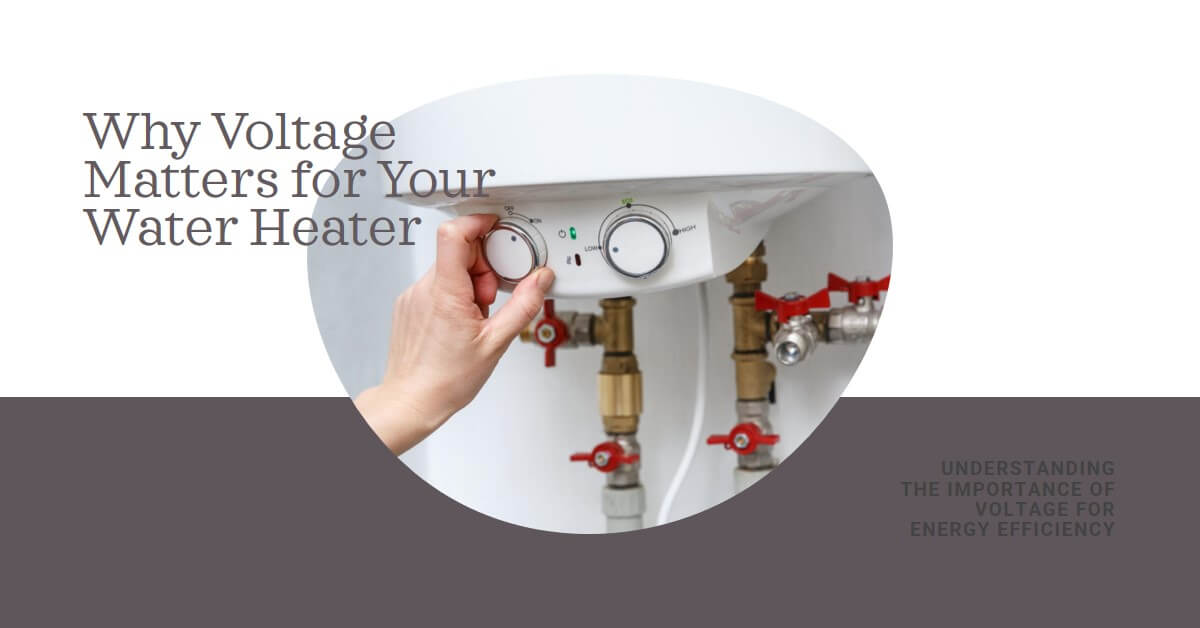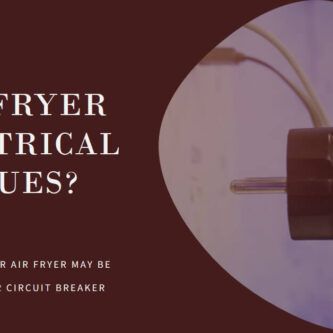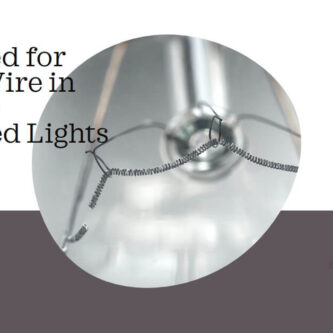Image: “Article Feature Image” by Bing is licensed under CC BY-NC-SA 4.0. Source: Bing Graphic Art. License: CC BY-NC-SA 4.0.
Water heaters play a crucial role in providing hot water for various domestic purposes. Whether it’s for bathing, cooking, or cleaning, a reliable water heater is essential.
But have you ever wondered if the voltage of your water heater makes a difference? Voltage selection is a critical aspect when it comes to water heaters. By adhering to the recommended voltage, you can ensure optimal performance and longevity of your water heater.
In this article, we will explore the significance of voltage in water heaters and understand why it matters.
Understanding Voltage
Voltage, also known as electric potential difference, is a fundamental concept in electrical systems.
It represents the force that pushes electric current through a circuit. Measured in volts (V), voltage determines the amount of electrical energy available for devices like water heaters. The higher the voltage, the greater the potential energy.
Water Heater Basics
To grasp the importance of voltage, it’s essential to understand the basic functioning of a water heater. Water heaters typically come in different types, such as tankless, storage tank, or heat pump heaters.
These devices consist of various components, including a heating element or burner, a thermostat, and a temperature and pressure relief valve. They work by heating water and delivering it to your taps when needed.
Voltage Requirements for Water Heaters
Different types of water heaters have specific voltage requirements. Manufacturers provide guidelines regarding the recommended voltage for optimal performance.
It is crucial to match the voltage of your electrical supply to the specified voltage of the water heater. Using incorrect voltage can lead to various issues, including inadequate heating, inefficiency, or even damage to the unit.
Using lower or higher voltage than the recommended
Using lower or higher voltage than the recommended specifications for your water heater can have significant consequences.
If you use a lower voltage, the heating element may not receive enough power to generate sufficient heat, resulting in inadequate water heating. This can lead to longer heating times and potentially insufficient hot water supply.
On the other hand, using a higher voltage than recommended can cause the heating element to overheat, potentially damaging the unit and posing a safety risk.
Additionally, higher voltage may lead to excessive energy consumption and increased utility costs.
It is crucial to adhere to the manufacturer’s guidelines and use the specified voltage to ensure optimal performance, energy efficiency, and longevity of your water heater.
Factors Affecting Voltage Selection
When selecting the appropriate voltage for your water heater, several factors come into play. The electrical infrastructure in your location is a crucial consideration. Some regions may have specific voltage standards or limitations.
Additionally, you need to assess the power availability and capacity of your electrical system to ensure it can support the desired voltage for the water heater.
Whether you are installing a new water heater or replacing an existing one, considering these factors is essential.
Benefits and Drawbacks of Different Voltage Options
Water heaters are available in different voltage options, each with its own advantages and disadvantages. Low-voltage water heaters are suitable for areas with limited power capacity but may take longer to heat water.
Standard voltage water heaters offer a balance between efficiency and power consumption. High-voltage water heaters can provide faster heating, but they may require a robust electrical infrastructure and a higher energy supply.
Voltage Conversion for Water Heaters
In some cases, you may need to convert the voltage of your electrical supply to match the water heater’s requirements.
This situation can arise when you move to a new location with a different voltage standard or if you wish to switch to a water heater that operates at a different voltage.
Professional assistance is recommended for voltage conversion to ensure safety and compliance with electrical codes.
Safety Considerations
When dealing with electricity, safety should always be a priority. Proper electrical safety precautions must be followed during water heater installation, maintenance, and operation.
It is advisable to seek professional assistance for these tasks, as qualified electricians can ensure that all electrical connections are secure and up to code.
Read also my article: How High Voltage Impacts Water Heaters
Conclusion
Voltage selection is a critical aspect when it comes to water heaters. By adhering to the recommended voltage, you can ensure optimal performance and longevity of your water heater.
Take into account the electrical infrastructure, power availability, and capacity of your location when choosing the voltage option.
Remember to prioritize safety by seeking professional help for installation and maintenance. By understanding the importance of voltage, you can make informed decisions and enjoy reliable hot water whenever you need it.



